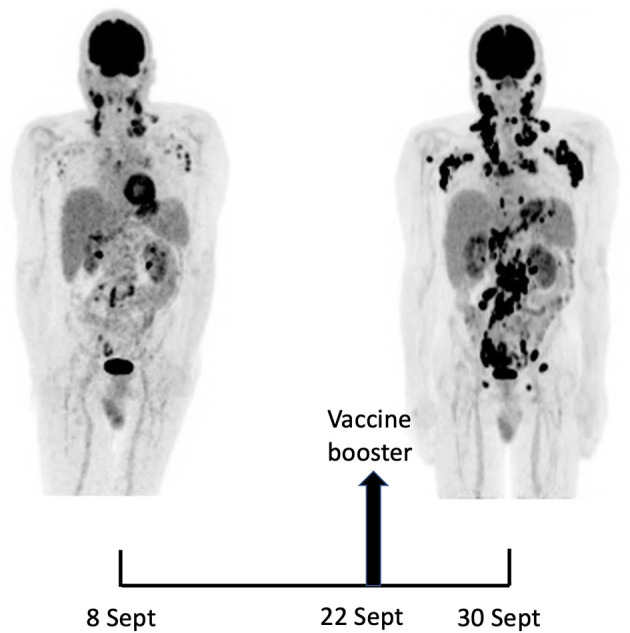A viral claim suggesting that COVID-19 vaccine booster shots are causing rapid cancer growth is found to be untrue. The claim was based on a study which has been misinterpreted by the antivaxxers to fuel the bizarre theory.
The claim is based on the study titled, Rapid Progression of Angioimmunoblastic T Cell Lymphoma Following BNT162b2 mRNA Vaccine Booster Shot: A Case Report. It was published on November 25, last year, and is yet to be professionally peer reviewed.

What Does the Claim Suggest?
The study takes up the case of a 66-year-old man who had already been diagnosed with a "rare, often but not always, aggressive (fast-growing) form" of lymphoma. The scans of the patient showed that his cancer has progressed quickly over the course of 22 days. The study found that it was during this time when he received his third booster of COVID-19 vaccine.
The study was soon taken up by many on social media to fuel the rumors about the booster dose of vaccine. "NIH Database Rapid growth cancer after booster. How TF can they still force this on our children!? Evil," tweeted a user.
"A client of my dentist 3x vaxxer After booster got tumors on neck and groin.same side as jab. This is what's really weird. After biopsy they told him growth had cancer cells in it,but wasnt cancerous," wrote another .
"fighting cancer and beat it. Then, about a month ago, they did another routine scan and discovered massive growth of a totally new cancer 20x more aggressive than the previous. His scan 3 months prior was clean. He had a booster," wrote a user.
Here is the Truth
Debunking the claim being made on the social media, Lead Stories reported that it was not true. In a communique to the outlet, Michel Goldman, one of the authors of a paper said that it was an abusive and unacceptable interpretation of the study.
The Lymphoma Research Foundation states, "Angioimmunoblastic T-cell lymphoma (AITL) is a rare, often but not always, aggressive (fast-growing) form of peripheral T-cell lymphoma (PTCL). While AITL only accounts for one to two percent of all NHL [non-Hodgkin lymphoma] cases in the United States, it is one of the more common subtypes of T-cell lymphomas. Elderly patients are more likely to be diagnosed with AITL.
The outlet further reported that the authors never claimed that the Pfizer booster shot caused the cancer, but it may have sped up its progression.
"This observation, which has been posted as a pre-print on the SSRN platform (18), suggests that vaccination with the BNT162b2 mRNA vaccine might induce rapid progression of AITL. Dedicated studies are needed to determine whether this case can be extrapolated to populations of patients with AITL or other peripheral T cell lymphoma involving TFH cells," read the report's conclusion.








